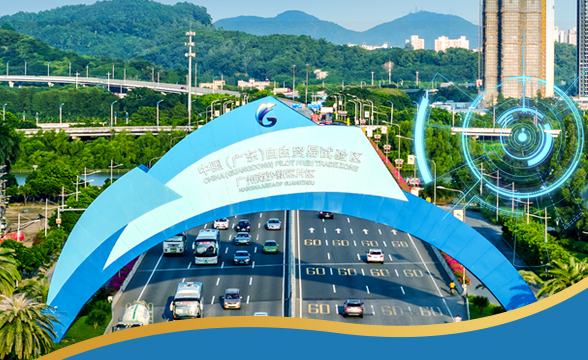Nansha perfects online government service platform
E-government service in Guangzhou’s Nansha district has made a breakthrough -- the identity authentication platform now offers more ID card-free options, bringing the number of services to 865.
The “weijing” (micro-police service) platform, first rolled out in April, now further relaxes the credentials restriction for overseas Chinese as well as people from special administrative regions.
They are allowed to complete online identity recognition with information of their passports or the mainland travel permits for Hong Kong and Macao residents. In addition, the electronic ID cards are viable for a broader business scope.
“We overseas Chinese enjoy a lot more convenience in business registration and personal certification thanks to the platform. The CTID WeChat mini program and the “weijing” application realize remote authentication with a global reach,” said an American overseas Chinese surnamed Yang.
In addition, there is no need for the appliers to be present or hand over a passport, sharply reducing the risk of their being misrepresented as a shareholder or corporate representative of a company.
As the platform’s business scope extended, its application to business affairs soared from a dozen to 856, and was made even more convenient by access to on-site and kiosk authentication.
The district has handled 40,774 businesses since the platform first applied to business registration on April 11 this year, according to Xu Liaoyuan, director of the local government service data authority.
The reform and innovation work marks further upgrading of the government service of the Nansha Free Trade Zone.
Its convenience, relying on Internet plus identity authentication and face recognition technology, helps create a high-quality, efficient and comprehensive investment system.
In this connection, the district is hopeful to draw more Hong Kong and Macao residents as well as overseas Chinese to settle down and provide impetus to the urban development of the Guangdong-Hong Kong-Macao Greater Bay Area and contribute to the country's promotion of the Belt and Road Initiative.
All rights reserved. Presented by China Daily










